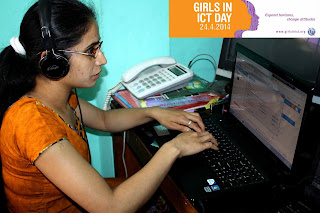 |
Introduction
I have chosen some especially abled students in our school to write this journal. As we know some of the students have learning difficulties. It is very important to use different teaching strategies and technologies for learning them. ICT can help the students their leaning. This journal I have chosen 3 type of learning disabilities that is Dyslexia, ADHD and Dyscalculia.
ICT can help specially-abled Students
Dyslexia
Dyslexia students have trouble processing language components, especially in reading and writing. Reading and writing started at an early age, and continue into primary grades. Students discover ways to examine and write by memorizing and repeating letters and words. However, the reality is that this technique can't continually learn for dyslexic college students. Students with dyslexia are very specific from students in preferred; they study otherwise at very different levels. Some students want greater aid from the people around them. Dyslexic students are without difficulty saturated if they are invited to discover ways to read and write. To overwhelm this hassle it's important to use the Information and Communication Technology (ICT) application in learning, this software is primarily based on computer-generated, so that it can assist dyslexic students in the area of literacy. The use of ICT programs may be very supportive of literacy skills and might provide benefits to them, they are able to learn independently in education, work, and living environment.
Dyscalculia
There are different programming have been intended to assist students with learning difficulties.
Especially for dyscalculia, I have seen the helping software’s will beat the students with learning difficulties:
- The Number Race: Helps to improve number sense in dyscalculia.
- Number Sense: Mathematical games to remediate dyscalculia
- MathBase 1: Focuses on number concepts
- Bubble Reef: Includes games to develop number concepts
- Jump Math: For extreme math learning difficulties.
- Knowsley Woods: Focuses on advanced number concepts
- Number Bonds: A game to show the connection among size and numbers
- NumberShark: Contains games concentrating on numeracy concepts
ADHD
Innovation can be an advantage for kids and adults with ADHD. People with ADHD generally fight with time management, organization, finishing tasks, and inability to focus on details. This can make it hard to keep focused on a school or workplace.
Applications and PC projects can help individuals with ADHD remain self-possessed, reach objectives, and even fight the desire to surrender to distraction.
For children, electronic clocks can enable the students to keep focused and pace themselves as they work. Furthermore, the innovation used in the study hall helps decline diversion in certain instances. One investigation of third and fourth-grade students with ADHD found that PC helped guidance in math brought about improved math execution and expanded on-task conduct.
Alarms on telephones or PCs can enable adults to get to gatherings on schedule or change gears when important. Utilizing an alarm to Carve out explicit timeframes
Conclusion
We know different disabilities students and how to help their learning using ICT. If we help their learning by using ICT, they will understand their lesson easily. Moreover, some of the students are interested in watching the different video, playing a game and colorful picture. The teachers should provide the students with a fun environment for students
Comments
Post a Comment